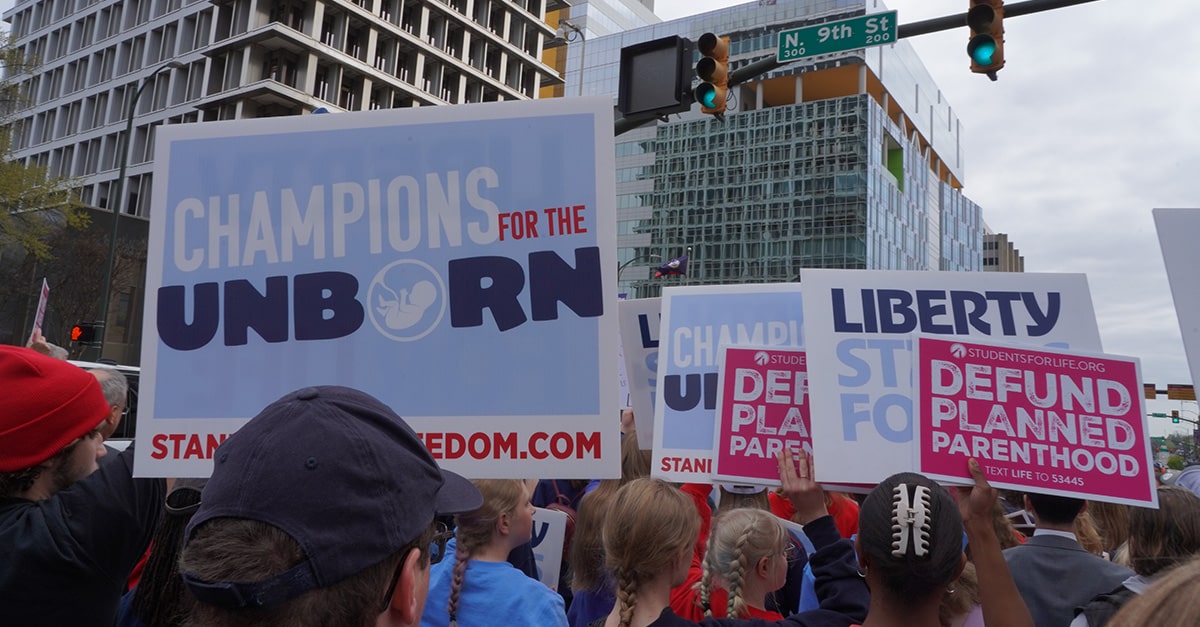In a 6-3 ruling that gives states a new tool to restrict abortion, the justices found that if state officials decide that an abortion provider isn’t eligible to receive Medicaid funding, neither the provider nor its patients can sue over the decision.
The U.S. Supreme Court on Thursday sided with South Carolina in its effort to exclude Planned Parenthood from the state’s Medicaid program, issuing a decision that could have far-reaching implications for conservative states seeking to restrict the ability of the nation’s largest abortion provider to use taxpayer dollars to finance their operation.
In a 6-3 ruling in Medina v. Planned Parenthood South Atlantic, the Court overturned a lower court decision that had blocked South Carolina from removing Planned Parenthood South Atlantic from its list of qualified Medicaid providers, finding that Medicaid laws do not give individuals or providers the right to sue the state if providers are taken off the list.
Justice Neil Gorsuch, writing for the majority, explained that “[P]rivate enforcement does not always benefit the public, not least because it requires States to divert money and attention away from social services and toward litigation. And balancing those costs and benefits poses a question of public policy that, under our system of government, only Congress may answer.”
The court’s three liberal justices dissented from the majority opinion.
At issue was a 2018 directive from South Carolina Gov. Henry McMaster, R, that disqualified abortion providers from offering women’s health and family planning services under the state’s Medicaid program because their primary activity isn’t healthcare but abortion. Planned Parenthood South Atlantic, which runs clinics in Charleston and Columbia, along with Medicaid patient Julie Edwards, sued after the governor issued the order.
Planned Parenthood argued in court that its clinics provide services other than abortion, such as cancer screenings, contraception, and “gender-affirming’ drugs, although not every clinic provides all or even some of those services. The plaintiffs also stated that South Carolina’s action violated federal law and infringed on the rights of Medicaid recipients to choose their healthcare provider.
Their argument relied on the 1871 Civil Rights Act, often cited in lawsuits against state officials, which allows individuals to sue when their federally protected rights are violated. A district court and later the Fourth U.S. Circuit Court of Appeals sided with Planned Parenthood and Edwards, concluding that Medicaid recipients could sue under the law and that South Carolina’s move was unlawful.
But the state, represented by the conservative legal group Alliance Defending Freedom and supported by the Trump administration, argued the Medicaid statute does not explicitly allow private lawsuits and that the right to sue cannot be implied; in other words, if Congress didn’t say that individuals could sue the states if their provider isn’t covered by Medicaid, then no individuals can sue.
John Bursch, senior counsel and vice president of appellate advocacy for Alliance Defending Freedom who argued the case before the court, said, “States should be free to fund real, comprehensive care and exclude organizations like Planned Parenthood that profit off abortion and distribute dangerous gender-transition drugs to minors.”
He celebrated the ruling, stating,
“The American people don’t want their tax dollars propping up the abortion industry. The Supreme Court rightly restored the ability of states like South Carolina to manage limited public resources in the best interest of their citizens.”
The ruling comes amid continued efforts in Republican-led states to restrict abortion access and defund providers who offer the procedure. South Carolina already prohibits most abortions after six weeks of pregnancy.
Since the Court’s 2022 decision overturning Roe v. Wade, many states have passed more restrictive abortion laws and pursued avenues to limit or eliminate public support for organizations like Planned Parenthood. At the same time, many states have also seen ballot measures pass that amend the state’s constitution to infer “a right to abortion” or a right to “reproductive freedom.”
Planned Parenthood South Atlantic’s status within the Medicaid program is now subject to action by South Carolina’s Department of Health and Human Services. The organization remains open and continues to serve patients, but it may no longer be able to bill Medicaid for its services, depending on the state’s next steps.
The ruling is likely to prompt other states to pass or enact similar laws. Already, Texas, Arkansas, and Missouri have passed legislation that removes Planned Parenthood and other abortionists off of the Medicaid provider list. At least two additional states, Idaho and Tennessee, have pending legislation that will likely move forward following the Court’s ruling.
The current budget proposal in Congress would also ban Planned Parenthood and other abortion mills from billing taxpayer-funded insurance programs for abortion.
A total of 18 states supported South Carolina in its case before the Supreme Court through friend-of-the-court briefs, indicating that they will likely use the ruling to further block the use of taxpayer money to pay for abortions.
Mat Staver, founder and CEO of Liberty Counsel, one of the legal organizations that filed a brief in support of South Carolina, said of the decision,
“The U.S. Supreme Court has rightfully ruled that states can defund abortion. It makes no sense to require states to fund an organization that kills children. Congress did not create a right for individuals to have states pay for their abortions. Taxpayer dollars should never be used to fund abortion or subsidize practices that kill children and harm women.”

The Supreme Court’s decision in Medina v. Planned Parenthood South Atlantic shows the good that can come when Christians work together to advance biblical values through public policy. This ruling supports the right of states like South Carolina to determine how taxpayer dollars are spent and to refuse to use public dollars to underwrite those organizations that profit from the destruction of human life.
Jesus taught that what Christians do for “the least of these,” we do for Him (Matthew 25:40). That type of charity isn’t limited to direct help. Supporting lawmakers and policies focused on preventing taxpayer money from flowing to abortion providers who kill God’s image bearers is also a way that Christians can actively help to protect the vulnerable—and we see that very clearly in South Carolina.
Government is tasked by God to restrain evil, and this ruling explicitly gives South Carolina permission to do just that. As the Court rightly acknowledged, states should be free to redirect funding toward providers that offer comprehensive care without engaging in the taking of innocent life.
The ruling is also critical because it gives state legislators a new tool through which it can limit abortions— without running afoul of any state constitutional amendment that gives women the right to an abortion.
Medina simply says that if a state decides that low-income patients can’t use their Medicaid benefits at an abortion clinic, those same patients can’t turn around and sue the state.
While critics are already charging that the Medina ruling will limit healthcare options for low-income women in South Carolina and other states, that is a straw man argument. Planned Parenthood runs just two clinics in South Carolina, both of which offer limited healthcare services, but residents have access to more than 140 federally qualified community centers and pregnancy centers across the state that provide a full range of health services for both women and children.
South Carolina residents will be just fine without Planned Parenthood — and the effort to protect unborn babies will be even better.
PHOTO: Liberty University students advocate for the protection of the unborn at the March for Life in Richmond, Virginia, in 2025. CREDIT: James Black
If you like this article and other content that helps you apply a biblical worldview to today’s politics and culture, consider making a donation here.





